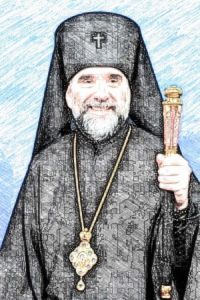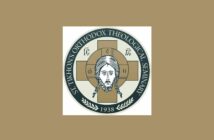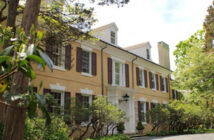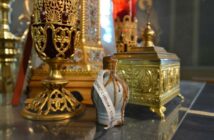Source: Diocese of New York and New Jersey (OCA)
Prot. No. 01-006/2022
The Feast of the Nativity
Beloved Members of our Diocesan Family:
Christ is Born! – Let us glorify Him!
“And the Lord said, ‘For I tell you many prophets and kings desired to see what you see and hear what you hear, but they did not see it or hear it’.” (Gospel of Luke 10:24)
For centuries on end, patriarchs and prophets and kings of the Old Testament waited for the coming of the Messiah, first foretold in Genesis 3:15. They lived their lives in that hope, but never saw Him. Ancient Hebrew fathers like Abraham, Isaac, Jacob and Moses looked to a promise that they never lived to see fulfilled. Holy prophets like Isaiah and Jeremiah, Micah and Daniel foresaw Jesus’ birth but never got to hear the words of His Gospel.
The Old Testament readings (paremia) of Christmas Eve trace the important prophecies of His Nativity by these great God-seers. Jeremiah foretold His coming in general: “Afterwards, Wisdom (Christ) was seen on earth, and He lived among men” (Baruch 3:38). Micah identified the very place of His birth: “And you, O Bethlehem, House of Ephrathah, though you are fewest in number among the thousands of Judah, yet out of you shall come forth to me the One to be ruler of Israel. His goings forth were from the beginning, even from everlasting” (Micah 5:1). And Daniel interpreted the dream of Nebuchadnezzar to mean His Church: “Then, in the times of those kings, the God of heaven will raise up a kingdom, and it shall never be destroyed. This kingdom shall not be left to another people, but it will break in pieces and crush all those kingdoms: and it will stand forever” (Daniel 2:44).
But it is Isaiah who is most specific about the Lord’s Incarnation, in the three paremia we read from his book. First, he foretells Christ’s Davidic lineage: “There shall come forth a rod from the root of Jesse, and a flower shall grow out of his root. The Spirit of God shall rest upon him” (Isaiah 11:1-2). In the second reading, Isaiah prophesies His rule: “A people who walk in darkness, behold a great light; and you who dwell in the country of the shadow of death, upon you a light will shine … For unto us a Child is born, unto us a Son is given, and the government will be upon His shoulder. His name will be called the Angel of Great Counsel, Wonderful Counsellor, Mighty God, Eternal Ruler, Prince of Peace, the Father of the World to Come” (Isaiah 9:2,6). Finally, and most importantly, Isaiah identifies the most unique aspect of His Nativity – His Virgin Birth: “Therefore the Lord Himself will give you a sign: behold, the virgin shall conceive and bear a Son, and you shall call His name Immanuel, which means ‘God is with us’” (Isaiah 7:14).
Surprisingly enough, even a pagan seer prophesied a detail of Christ’s coming. Balaam the soothsayer’s final oracle – understood even by the ancient Israelites as a Messianic prophecy – foretold a familiar scenario: “I will show him, but not now; I bless him, but he is not near. A star shall rise out of Jacob; and a man shall rise out of Israel” (Numbers 24:17). From this passage, the Magi are called “disciples of Balaam.”
Yes, for centuries these men of faith longed for the Messiah. They tried to live their lives to prepare for Him – in prayer and fasting and confession. But He did not come in their lifetimes.
However, “When the fullness of time came,” as St. Paul tells us in the Epistle read on Christmas morning, “God sent His own Son, born of a woman, born under the Law, to purchase freedom for the subjects of the Law, in order that we might attain the status of sons” (Galatians 4:5). WE, my beloved in the Lord, we are the beneficiaries of His coming – His Birth, His Life, His Teaching, His Death and His Resurrection. We, of the Church, have known what those patriarchs and prophets and kings never did.
As the Gospel of John so beautifully expresses the Incarnation of the Son of God: “And the Word became flesh and dwelt among us, and we beheld His glory, the glory of the only begotten Son of the Father, full of grace and truth … For the Law was given through Moses; grace and truth came through Jesus Christ” (John 1:14-17). And Paul simply adds: “Thanks be to God for His unspeakable gift” (2 Cor 9:15).
From the call of His forerunner, John the Baptist … to the first-hand experience of His Apostles … to the faithfulness of the Saints of every generation of Christian history … to us who live what the Bible teaches and the Church preserves … We are blessed by His being here with us – in His holy Word … in his Sacred Mysteries … in the Orthodox way of life – Yes, truly “God is with us!”
So, my beloved, how are we to respond to this great gift we receive on Christmas – the Birth of our Lord and God and Savior Jesus Christ – this day and every day? I will defer for the answer to a holy Saint of our Church, renowned and beloved, St. John of Kronstadt, a true example of the very teaching he offers us:
“What then, O brethren, is required of us in order that we might avail ourselves of all the grace brought unto us from on high by the coming to earth of the Son of God?
“What is necessary, first of all, is faith in the Son of God, in the Gospel as salvation – bestowing heavenly teaching; a true repentance of sins and the correction of life and of heart; communion in prayer and in the Mysteries; the knowledge and fulfillment of Christ’s commandments.
“Let us, then, O brothers and sisters, bring those virtues as a gift to the One Who was born for the sake of our salvation … God and Man, come to die for us. This, from us, shall be the most pleasing form of sacrifice to God and to the infant Jesus Christ.”
— Saint John of Kronstadt, “Sermon on the Nativity of Christ”
My prayer for you, beloved in the Lord, is three-fold: First, that on this day and every day you are grateful for the greatest of all gifts, the Birth of our Lord God and Savior Jesus Christ, and tell Him so in your daily prayers. And second, in return for all the ways that He blesses you, that you live a life of commitment to faith in action – by believing His word and following His example; communing with Him in prayer, in the divine services and in the holy sacraments; obeying His commandments and repenting of your sins; and caring for those in need, even “the least of His brethren.”
And lastly, I ask that the Lord, the Greatest Giver, will bless you this Christmas and t hroughout the coming new year with all the good things that come from His hands – all that He knows you need, and all that you ask for in prayer of the God Who loves you more than you love yourself.
hroughout the coming new year with all the good things that come from His hands – all that He knows you need, and all that you ask for in prayer of the God Who loves you more than you love yourself.
With my humble prayers, my archpastoral blessing and sincere love,
Archbishop of New York and the Diocese of New York and New Jersey
His Eminence, Archbishop Michael serves as an Advisory Board Member of Orthodox Christian Laity.



